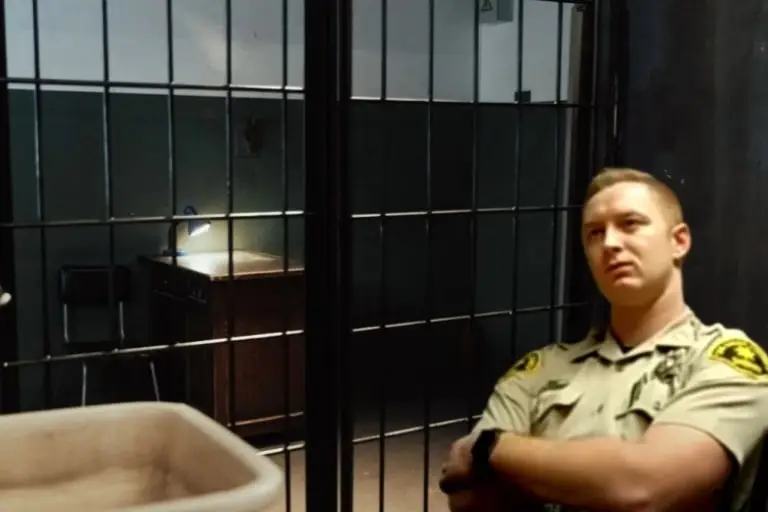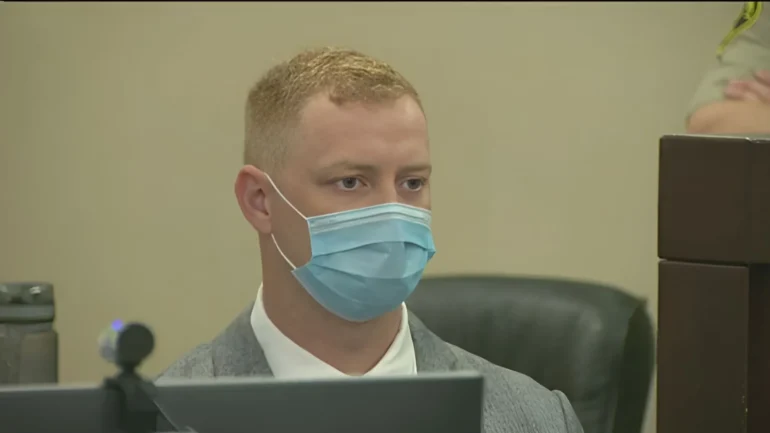Jaylen Fleer, a former deputy sheriff in San Diego, California, was sentenced to 12 years in prison in 2021 for illegal sexual activity with minor girls. Fleer pleaded guilty to 20 felony and misdemeanor charges stemming from his acts, which included coercing females into spending time with him, encouraging them to bring their younger friends, and attempting to date minors for sexual purposes. His misdeeds were revealed in 2020 when many women, named as Jane Doe 1 through 4, spoke out about his misbehavior. Fleer’s breakdown ended his law enforcement career and began his life as a convicted sex offender.
From Deputy Sheriff to Convicted Offender
Jaylen Fleer’s law enforcement career took a dark turn when he was prosecuted and convicted of participating in illegal sexual activity with minor girls. Despite his former position as a deputy sheriff in San Diego, Fleer’s activities highlighted a dramatic difference between his public image as a law enforcement officer and his private behavior. The case of Jaylen Fleer emphasizes the need of maintaining integrity and ethical behavior in law enforcement positions, focusing attention on potential disparities between an individual’s public persona and their concealed acts.

The Victims’ Stories: A Journey of Courage and Resilience
The victims of Jaylen Fleer’s heinous crimes, identified as Jane Doe 1 through 4, have courageously shared their harrowing experiences of abuse inflicted by the former deputy sheriff. Their stories expose the profound and devastating impact of Fleer’s predatory behavior, shedding light on the emotional and psychological scars that may linger for a lifetime. These brave individuals played a pivotal role in holding Fleer accountable, ultimately leading to his imprisonment and unmasking the dark reality behind his seemingly respectable public image. The ongoing trauma they endure underscores the critical need for sustained support and comprehensive care for survivors of sexual abuse, ensuring they have the resources necessary for healing and recovery.
Unveiling the Investigation: Piecing Together a Case
The case against Jaylen Fleer came to light in 2020, when the victims, identified as Jane Doe 1 through 4, stepped forward with their allegations of abuse. The subsequent investigation was a meticulous process involving the collection and preservation of crucial evidence, including testimonies from witnesses and any physical or documentary evidence related to Fleer’s actions. Law enforcement agencies led the inquiry, conducting thorough interrogations, making arrests, and compiling the evidence needed to build a compelling case against Fleer.
Throughout the investigation, Fleer exercised his legal rights, including the right to gather exculpatory evidence and access legal counsel for his defense. Despite these efforts, the overwhelming evidence presented by the prosecution—comprising victim testimonies and other incriminating information—culminated in Fleer’s conviction on multiple felony and misdemeanor charges. These charges stemmed from his exploitative sexual conduct with young girls, bringing a measure of justice to his victims and affirming the importance of vigilance in protecting vulnerable individuals from such predators.
The Charges of Jaylen Fleer
Jaylen Fleer, a former San Diego deputy sheriff, was charged with 20 sex charges against four young victims. The charges included contacting a minor with the intent to commit a sexual offense, sending harmful matter with the intent to seduce a minor, attending an arranged illicit meeting with a minor, oral copulation by a person over 21 with a person under 16, lewd act on a 14 or 15-year-old child, pandering for prostitution, attempted lewd act on a child, and arranging a meeting with a minor for lewd and lascivious behavior.
Fleer’s acts were deemed particularly serious due to his position of authority as a law enforcement officer and the large number of victims implicated.
The Plea Deal
Jaylen Fleer’s decision to plead guilty to the allegations against him had a huge impact on the judicial proceedings and sentence. By accepting responsibility for his conduct early on, Fleer spared the victims the anguish of testifying in court and reliving their traumas. His plea also reflected an acceptance of fault and remorse, all of which were considered during the sentence process. Pleading guilty most likely influenced the court’s assessment of Fleer’s case and may have contributed to the judge’s decision on his punishment, thus influencing the outcome of the legal procedures.
The Sentencing
The court in Jaylen Fleer’s case sentenced him to 12 years in prison, stressing the gravity of his acts and the importance of accountability. The judge called Fleer’s acts “despicable” and referred to him as “a sexual predator” who had harmed young females. The judge most certainly took into account the number of victims, the nature and duration of the abuse, Fleer’s position of authority as a law enforcement officer, and the impact on the victims when assessing the length of the sentence.
The judge also recognized Fleer’s choice to plead guilty, which saved the victims from having to testify and relive their ordeals in court.
The Aftermath
The Jaylen Fleer incident shocked and concerned the community, highlighting a former deputy sheriff’s misuse of power and violation of trust. It emphasized the significance of assisting victims of such crimes by providing them with resources for healing and recovery. The case also highlighted the importance of preventive measures to avoid such situations in the future, such as more training for law enforcement personnel, stronger supervision procedures, and developing an accountability and transparency culture within law enforcement institutions.
The Probationary Period
After serving his 12-year jail sentence, Jaylen Fleer will be placed on probation, during which he will be rigorously monitored to ensure that he does not reoffend. This supervision is critical for public safety since it allows authorities to monitor Fleer’s activities and prevent him from participating in additional dangerous activity. Continuous surveillance of sex offenders such as Fleer is critical to ensuring community safety and safeguarding potential victims from further harm.
The Role of Media in the Jaylen Fleer Case
The media played a pivotal role in bringing the Jaylen Fleer incident to public attention, ensuring transparency while safeguarding the victims’ identities. Through comprehensive reporting, media outlets highlighted Fleer’s misconduct, detailing his crimes, subsequent arrest, trial, and sentencing. This coverage not only informed the public but also underscored the severity of the actions committed by the former deputy sheriff.
Jaylen Fleer’s case serves as a stark reminder of the perils associated with the misuse of power and exploitation of vulnerable individuals. It underscores the critical need for integrity and ethical conduct in law enforcement positions. The revelations surrounding Fleer’s actions stress the importance of holding individuals accountable when they breach public trust. Additionally, this case sheds light on the necessity of supporting victims, implementing preventative measures, and fostering an environment of transparency and responsibility within law enforcement and the wider community.

